Rabbi Lev Leibman: "Imagine the Levite Orchestra in the Holy Temple"
Rabbi Lev Leibman was encouraged by his parents to develop his musical talents since the age of five, becoming an exceptional musician. During his youth, he returned to Judaism, discovering that music is deeply rooted within the Torah and Chassidic teachings. "The palace of music and the world of repentance are adjacent," he explains.
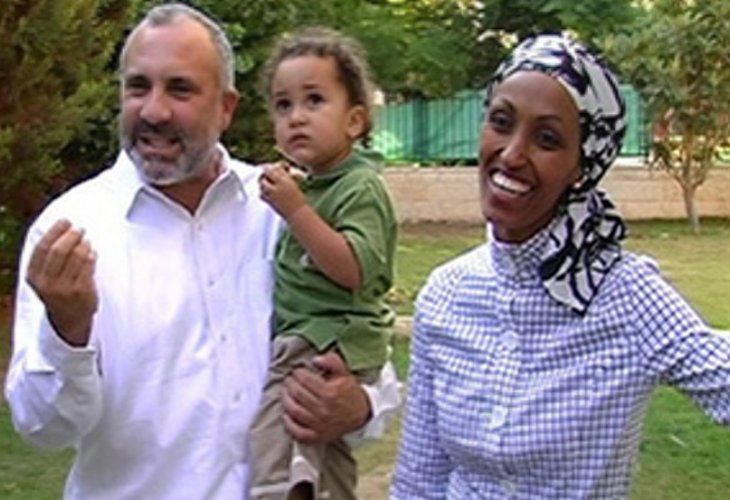 Rabbi Lev Leibman
Rabbi Lev LeibmanWhat associations come to mind when you think of the Holy Temple? For Rabbi Lev Leibman, the moment he speaks about the Holy Temple, he immediately envisions the work of the Levites.
"Imagine," he says, "in the Holy Temple, the holiest place in the world—a place entirely dedicated to serving Hashem—there is at least twice a day a 'performance' by a gigantic orchestra, about 200 musicians, which is an integral part of the sacrificial rite."
"If in a regular performance, musicians sit facing the audience, in this orchestra, they stand facing the altar and the sanctuary with their backs to the audience; this is their service to the divine presence."
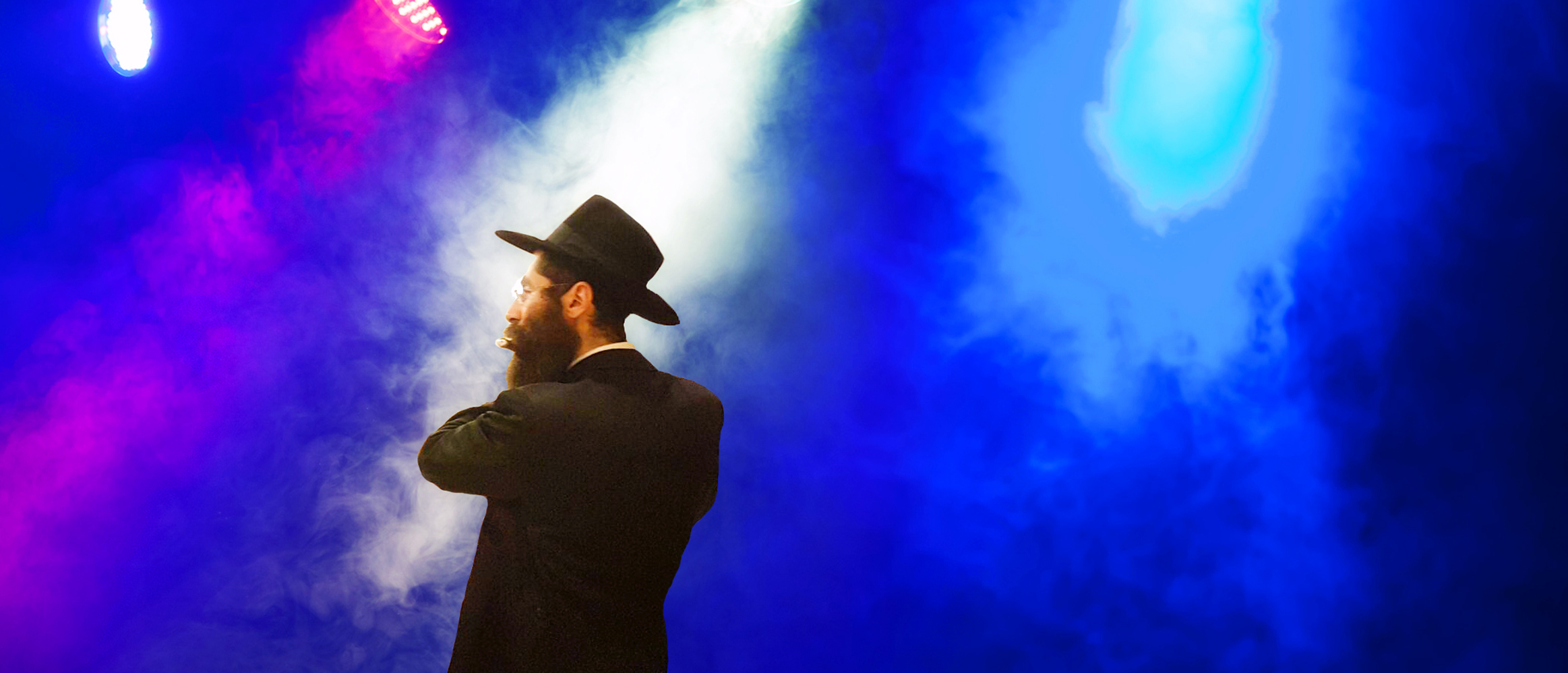
Rabbi Leibman provides precise details about the time and place of the music, the attire and age of the singers, and the musical instruments of the Levites, which were crafted according to heavenly wisdom. "But beyond all this," he says excitedly, "there is the inner and spiritual meaning of the song. In Chassidism, it is described that the Levites used their music to direct the intentions and secrets of the offering; they knew how to influence and awaken the human soul through melody, showing how the music thought of the Temple has an application within the music teachings founded by the Baal Shem Tov in Chassidism, where the melody is part of serving Hashem with melodies aimed at the upper worlds."
Childhood in Communist Russia
The emotional descriptions provided by Leibman came as a result of years of study. Surprisingly, however, his childhood was spent far from anything related to study or Judaism.
"I was born in Moscow," he recounts, "to parents with higher education—my father an electronics engineer and my mother an ophthalmologist—but our background in Judaism was virtually nonexistent. Once I came home from kindergarten and understood from the conversation that we were Jewish, I innocently asked, 'Mom, but being Jewish is not good...' These were the messages we received from the education system."
His rapprochement with religion began thanks to his father. "My father always had an inner feeling that there was someone in the sky guiding all life events, known as 'Divine Providence.' My father would occasionally visit the Marina Roscha Synagogue in Moscow, and I would accompany him. I still vividly remember a large public Seder led by Chabad emissaries for hundreds of Jews during the challenging comminist era, and as a seven-year-old child, I connected with the atmosphere and loved the taste of the round matzah distributed there..."
In 1990, with the first wave of immigration, Leibman's family moved to Israel and settled in Rishon LeZion. "As a child, I attended a state primary school and later 'Shevah Mofet' High School in South Tel Aviv—a special framework that had just been established for Russian science enthusiasts. To put it in context, saying that five matriculation units seemed like first-grade level to our mathematics teacher gives some sense of the standard..."
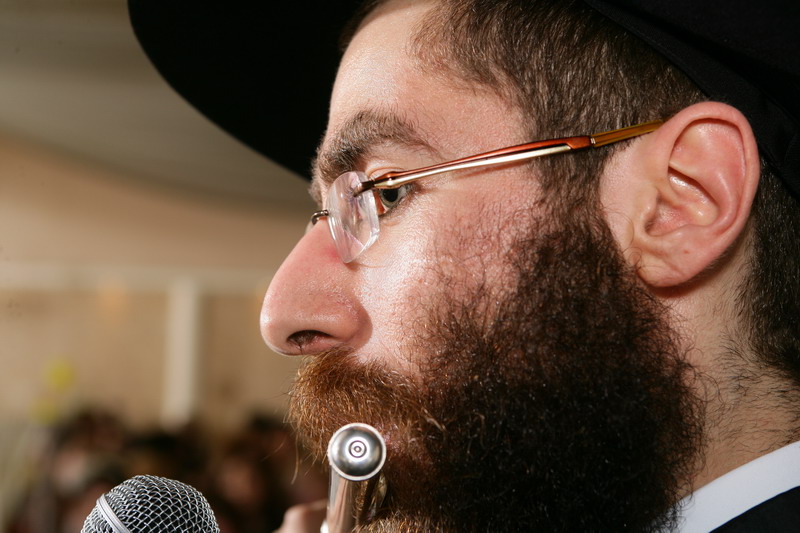
Leibman excelled in all fields of study, especially in music. "I devoted myself to music studies since the age of five when I was found to have perfect pitch and was sent to a private tutor to develop my talent. At six, I entered the Moscow Central Music Conservatory. After immigrating, I continued at the Tel Aviv Music Conservatory, playing the flute and recorder, reaching significant achievements until I participated in a groundbreaking international recorder competition in Israel at age 16. No one dreamed then that the young man's life was about to change drastically."
So how did you become drawn to Judaism?
"While living in Rishon LeZion, my father formed a close bond with Rabbi Yitzchak Grossman—Chabad's emissary in our city. This didn't change anything at home, but my father began taking me to the synagogue on Shabbat, and I participated in Chabad summer camps during vacations."
However, a more significant change began after my bar mitzvah. "My father, without much intention, made sure I studied 'Chavrusa' with Rabbi Moshe Grossman, the emissary's son. I would go to his house weekly, learning deep topics with him. Initially, I didn't understand much, but my soul felt that this hour was the most important and precious. I eagerly looked forward to this 'Chavrusa' every week. After some time, I began to understand more, until one day at age 15, I realized one hour a week wasn't enough; I wanted more. So, Rabbi Grossman arranged for me to study at Tomchei Temimim Yeshiva in Kfar Chabad. I would tell my mother there was a swimming pool there..."
The turning point in my life came when I spent Shabbat at the yeshiva. "It was the first time I experienced Shabbat at a yeshiva, and it felt like an elevated atmosphere," he describes, "a day filled with holiness. I was deeply impressed by the special prayer and later, during the afternoon, by the Chassidic gathering where about a hundred students sat discussing serving Hashem. Most of the discussions were in Yiddish, so I didn't understand much, but during breaks, there were captivating and uplifting melodies, which I understood well."
"I remember," he says with excitement, "observing the faces of the students, and that's when I had an epiphany—the students sitting here were the same age as my friends from Shevah Mofet High School. But a deep chasm separated them! Realizing this was a defining moment for me. At that moment, I decided my place was here, at the yeshiva."
Faith Enters the Home
The decision was made, but the parents were not satisfied. "The idea didn't appeal at all to my parents," he explains, "As I've already mentioned—my mother is a doctor and my father is an engineer. They were sure I would acquire higher education and take a 'safe route.' It was for them like losing their son... It was just before Rosh Hashanah, and I prayed especially about it. It was emotional to see how within two weeks, the situation at home turned around—during the Sukkot holiday, my parents attended a seminar where the lectures were aimed precisely at an intellectual audience, exposing them to a new world."
According to him, from that Sukkot onwards, the entire direction at home changed. "We experienced a real transformation, and today my dear parents and even my eighty-year-old grandmother—may they live long and happy lives—do not only lead a Chassidic and virtuous lifestyle but also influence others. My father runs a Chabad house for Russian speakers and gives Torah lessons using electronics concepts to explain content, while my mother, an ophthalmologist, explains to patients that medical treatment has its limitations and advises checking mezuzahs and giving charity."
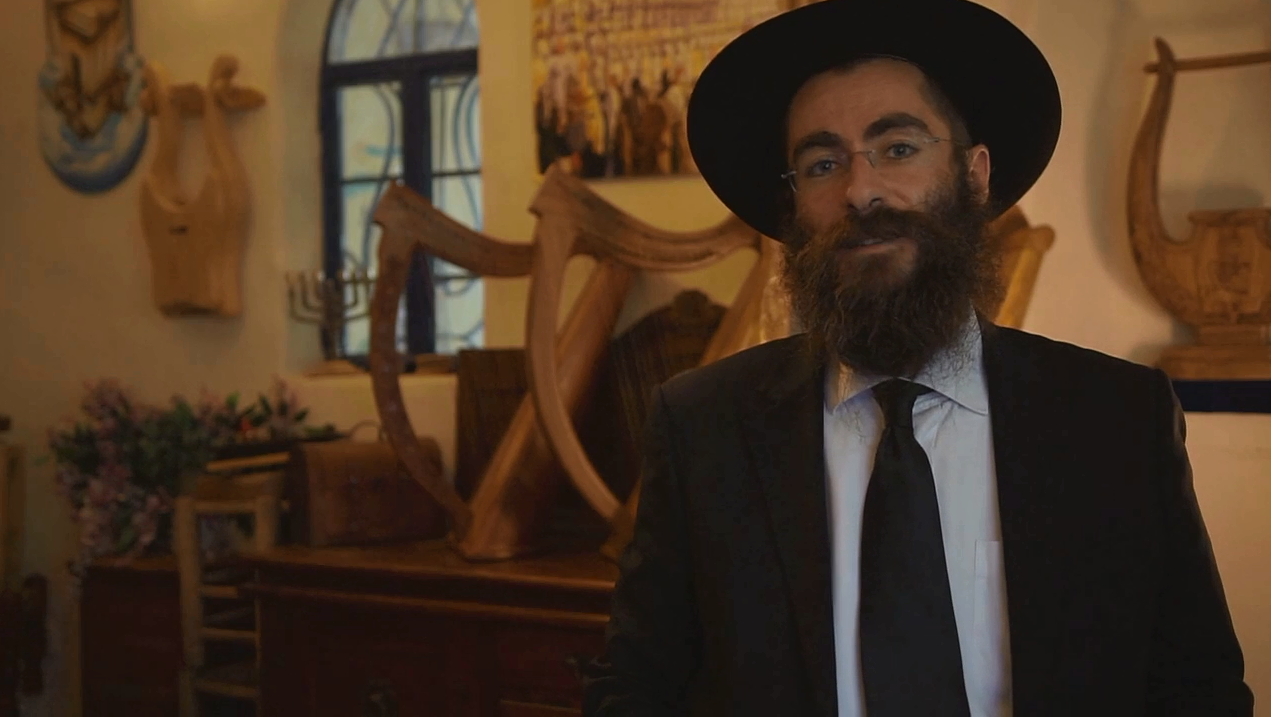
Leibman himself went through a revolutionary process—after three years at Kfar Chabad Yeshiva and another three years at a Brooklyn yeshiva, he established his home eleven years ago and now leads a prosperous family. "Along the way, I was tested for rabbinical certification and received it, but when I look back at my life experiences, I think the most spiritually special period was the time I spent at the yeshiva—a period I will never forget."
However, it was precisely during those days at the yeshiva he faced a serious dilemma. "I didn't know how my studies would align with my musical advancement, which was hard to give up. The great surprise came when I discovered that within the yeshiva walls, I could find the true treasure of music. A dual treasure for me—hundreds of amazing melodies with inner beauty and unique depth not found in any music world, and a wonderful world of music teachings in Chassidic texts—various Rebbe's articles exploring the influences of melody on the soul and shedding new light on the essence of music. For the Zohar states that the Torah contains all sciences and wisdoms, so I found myself specializing in the music existing within the Torah. For me, every melody is a complete tractate."
After completing his yeshiva studies, he began compiling all the material on the value of music. Initially, he thought it would be a thin booklet, but ultimately it became a 270-page book. In the past two years, Leibman has consistently released weekly articles about specific melodies, but his flagship creation is the book 'Nigun Arba Bavos'—a 170-page book entirely devoted to a single nigun.
The Palace of Music and the World of Repentance
In these days approaching Tisha B'Av, he chooses to share with us a unique topic he is writing about—the song of the Levites in the Holy Temple. "I have been involved in this field for several years," he notes, "and after researching the sources of Jewish music, my book 'L'nagen B'heichalo' was born, which describes the topic from all its aspects. From the book came the need for a lecture to pass this topic to the broad audience, leaving people in awe with a new understanding of the magnificent Levite orchestra that existed in the Temple."
With this lecture, he currently travels across Israel and worldwide, accompanying it with soul-stirring melodies. "When I speak of the song of the Levites, I witness time and again the power of melodies along with the power of the Holy Temple, penetrating and touching the heart of every Jew," he shares.
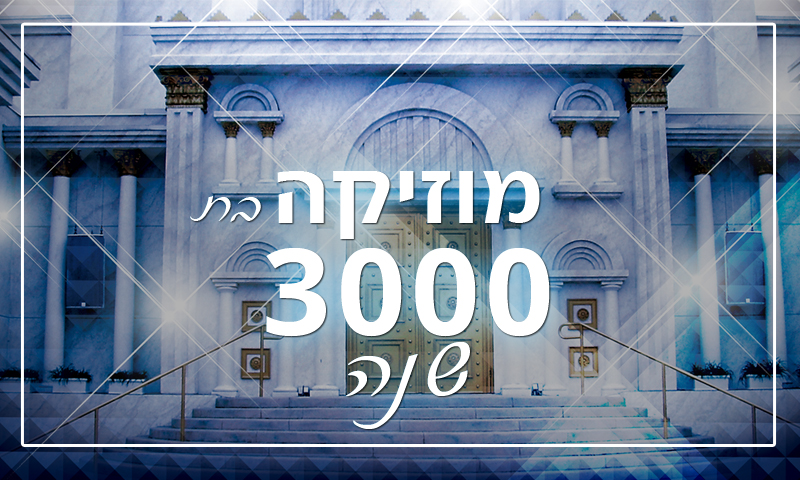
As a result, he encounters a fascinating phenomenon: "I constantly discover more and more musician returnees who drew closer to Judaism. Remarkable talents—conductors, composers, singers, and instrumentalists of various instruments, where melodies played a significant role in their spiritual journey. This is no coincidence, the palace of music is an elevated palace, very near to the palace of repentance."
"All that's left is for me to wish that soon, we will merit the building of the Third Temple and hear the royal choir and the special violin with eight strings, transforming these sad days into days of joy and happiness," he concludes.

